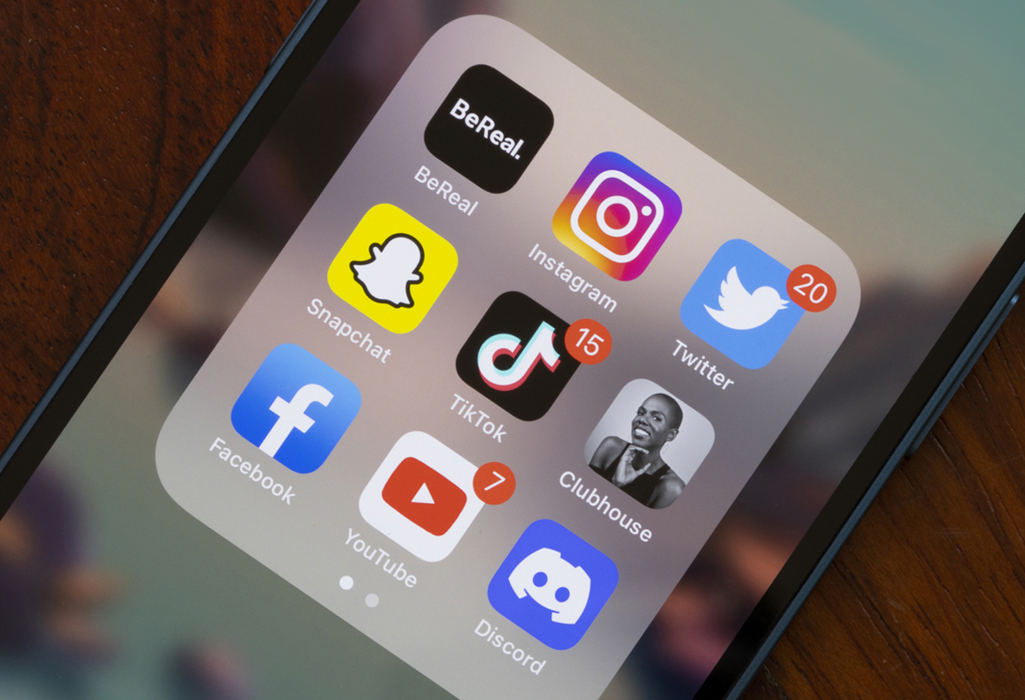In a 2017 interview with Mike Allen of Axios, Sean Parker, the first president of Facebook and founder of Napster, unveiled the dirty truth about how social media platforms like Facebook manipulate our brains.
Parker said, “The thought process that went into building these applications, Facebook being the first of them … was all about: ‘How do we consume as much of your time and conscious attention as possible?’ And that means that we need to sort of give you a little dopamine hit every once in a while, because someone liked or commented on a photo or a post or whatever. And that’s going to get you to contribute more content, and that’s going to get you … more likes and comments.
“It’s a social-validation feedback loop … exactly the kind of thing that a hacker like myself would come up with, because you’re exploiting a vulnerability in human psychology. The inventors, creators – it’s me, it’s Mark [Zuckerberg], it’s Kevin Systrom on Instagram, it’s all of these people – understood this consciously. And we did it anyway.”
The social internet is designed to be addictive. It is not a neutral tool that humans discovered and decided to use nonstop on their own. Since the start, and especially in more recent iterations, the social internet has been designed with the intent to get people addicted. The people who create the social media apps and websites you use every day and compulsively check at the dinner table, before bed and while sitting at stop lights want you to become enslaved to these platforms.
You and I are being played.
We are, as author Nicholas Carr says in his book The Shallows, like rats in a psychological experiment. We are being prompted and prodded and poked that life is happening all around us, and we better check in to see what everyone’s doing with their lives, what everyone thinks about the pictures of our kids, because if we don’t, we might miss out on something “important.” Like a rat who gets a treat when it pushes a lever, we are rewarded with a little red notification if we’re obedient and open the app like we’re told. We think we’re choosing to “just check in.” We aren’t. Our behavior has been so modified, our brain has been so deeply “hacked,” as Parker puts it, that we believe our social media addiction is normal behavior. We don’t see it as a problem. It’s just how things are now. How does it work? How are we drawn into the addiction? We are manipulated by the algorithms at play on our favorite social media platforms. Let me explain how Facebook works, as an example.
How Facebook keeps us scrolling
The primary goal of Facebook is to make money. That’s fair. It’s the right of any capitalist company to do that. The primary way Facebook makes money is by selling ads. The way Facebook sells so many ads is by capturing the data and attention of more people than any other social media platform. So, Facebook needs to keep people using the platform in order to keep the value of its ads high. Then, the question you would ask is, “How does Facebook keep people on its platform?” Good question. I’m glad you asked. There are a number of ways Facebook has engineered the platform to keep people scrolling, but one rises above them all: divisiveness.
The social internet is designed to be addictive. It is not a neutral tool that humans discovered and decided to use nonstop on their own.
In 2018, an internal investigation at Facebook reported, “Our algorithms exploit the human brain’s attraction to divisiveness.” The investigation also revealed that the Facebook algorithm is designed to deliver, “more and more divisive content in an effort to gain user attention & increase time on the platform.” Facebook’s own employees reported that its algorithm – the secret mathematical equation developed to determine what you see when you open Facebook – is designed to serve you “more and more divisive content in an effort to gain user attention & increase time on the platform.” The results of that study were presented internally at Facebook and shelved. They just ignored the research. No one outside Facebook knew about that presentation until the Wall Street Journal reported about it in the spring of 2020.
Facebook knows that the most reliable way to keep you scrolling is to make you mad. Divisive content leads to more engagement than unifying content. So is it any wonder that Facebook’s algorithm was engineered to stoke divisiveness? Such a strategy is advantageous to their business model, but harmful to the wellness of its users – a trade Facebook has routinely made throughout its existence.
This is but one example of how the social media platforms to which so many of us are addicted operate. The goals of these platforms go far beyond “connecting users for the greater good of mankind,” as so many Silicon Valley mission statements often sound. It just so happens that connecting users for the good of mankind is incredibly lucrative, and the allure of attention-driven ad revenue is routinely pursued at the expense of user wellness and societal peace.
We’re always ‘just checking’
Our addiction is a major factor in what keeps us logging on even when it isn’t making us happy. In his book Irresistible: The Rise of Addictive Technology and the Business of Keeping Us Hooked, Adam Alter shares about a 2013 study conducted by psychologist Catherine Steiner-Adair. The study examined the effects of parents’ online addiction on their children. “My mom is almost always on the iPad at dinner,” a seven-year-old named Colin told Steiner-Adair, “She’s always ‘just checking.’” We’re addicted to “just checking” because we fear missing out on the latest controversy, the newest family photo, or the most recent development in the apparently-amazing lives of all of our friends.
Alter lists six basic ingredients of behavioral addiction that have been adapted to our online experience, they are: goals, feedback, progress, escalation, cliffhangers and social interaction. These ingredients, when mixed together, make the social internet feel like a sort of competition or video game – a process known as “gamification.” Goals give us something to pursue. Feedback gives us an idea of how people perceive us. Progress gives us the feeling of productivity and achievement. Escalation makes the game more challenging, and thus, more rewarding. Cliffhangers give us a sense of anticipation and a hunger for more. Social interaction reminds us we’re human. With all of these factors at play, it’s no wonder we’re addicted to the social internet, even if we’re “just checking.”
This is how the social internet operates. We are addicted to “just checking” platforms that are engineered to keep our attention at any expense to our wellness. In order to retain control of our eyes, our minds, and our time, we have to be intentional in how we use social media and recognize the ways in which we are being manipulated so that our attention may be stolen.
(EDITOR’S NOTE – Chris Martin is content marketing editor at Moody Publishers and co-host of “Social Qs” podcast.)


